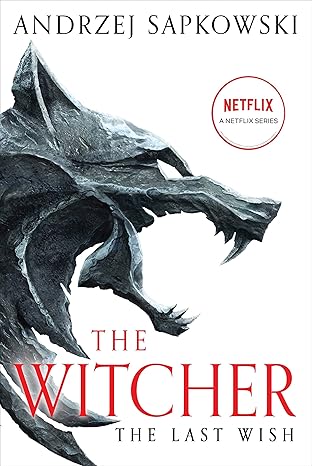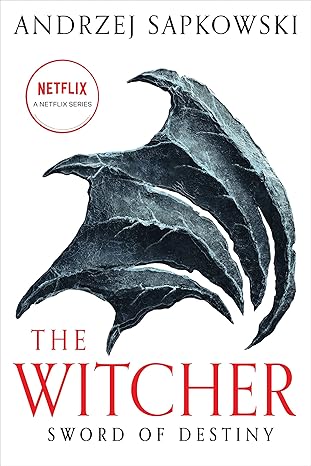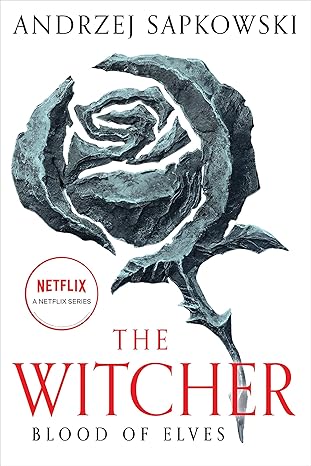
How to Read Andrzej Sapkowski's Books on Correct Reading Order for The Witcher Books
How to Read Andrzej Sapkowski's Books on Correct Reading Order for The Witcher Books
Estimated Reading Time: 10-12 minutes
Introduction
Andrzej Sapkowski, a Polish author born in 1948, is renowned for his contributions to the fantasy genre, most notably through his acclaimed series, The Witcher. This series has not only captivated readers with its rich storytelling and complex characters but also sparked a cultural phenomenon, inspiring video games, a Netflix series, and graphic novels. Sapkowski's unique blend of Slavic mythology, moral ambiguity, and philosophical musings makes his works significant in the landscape of modern fantasy literature.
Understanding the correct reading order of The Witcher books is essential for grasping the intricate narrative threads and character developments that unfold throughout the series. This guide will navigate you through Sapkowski's foundational texts, ensuring that you appreciate the depth and nuance of his storytelling.
Why Andrzej Sapkowski's Perspective Matters
Sapkowski's approach to storytelling is distinctive because it challenges traditional fantasy tropes, presenting morally complex characters and situations that reflect real-world dilemmas. His works delve into themes of destiny, free will, and the nature of humanity, often leaving readers to ponder difficult questions without clear answers. Unlike many fantasy authors, Sapkowski's narratives are steeped in historical and cultural references, particularly from Slavic folklore, which enriches the reading experience.
His contributions to the genre have had a lasting impact, influencing not only literature but also adaptations in various media. By understanding his perspective, readers can appreciate the layers of meaning in his works and the broader implications of his storytelling.
Overview of Recommended Books
The Last Wish
The Last Wish is a collection of short stories that introduces Geralt of Rivia, a monster hunter known as a Witcher. This book serves as a prologue to the series, establishing the world of The Witcher and its complex moral landscape.
Main Themes and Arguments
The stories explore themes of fate, choice, and the duality of human nature. Geralt often finds himself in situations where he must navigate the murky waters of morality, making choices that challenge his principles.
Historical Context and Significance
Published in 1993, The Last Wish reflects the post-communist Polish literary scene, where authors sought to redefine national identity through storytelling. Sapkowski's use of folklore and myth serves as a bridge between traditional narratives and contemporary issues.
Key Insights and Takeaways
- The Nature of Choice: Geralt's adventures illustrate the complexity of choice and the consequences that follow.
- Moral Ambiguity: The characters often defy simple categorizations of good and evil, prompting readers to reflect on their own values.
- Interconnectedness of Stories: The tales are woven together, revealing how past actions influence present circumstances.
Why Read This Book
The Last Wish is essential for understanding the origins of Geralt's character and the moral dilemmas he faces. It sets the stage for the larger narrative arc of the series and is a must-read for anyone looking to delve into the world of The Witcher.
Sword of Destiny
Following The Last Wish, Sword of Destiny further develops Geralt's character and introduces significant relationships, particularly with Yennefer and Ciri.
Main Themes and Arguments
This collection of stories delves deeper into themes of love, destiny, and sacrifice. Geralt's relationships are tested as he grapples with his feelings for Yennefer and his protective instincts toward Ciri.
Historical Context and Significance
Published in 1992, this book reflects the growing interest in fantasy literature in Poland and abroad. It showcases Sapkowski's ability to blend personal narratives with broader societal themes.
Key Insights and Takeaways
- Destiny vs. Free Will: The tension between predestined paths and personal choice is a recurring theme that challenges characters' motivations.
- The Power of Relationships: Geralt's connections with Yennefer and Ciri highlight the importance of bonds in shaping one's identity.
- Cultural Reflections: The stories draw on Slavic mythology, enriching the narrative with cultural depth.
Why Read This Book
Sword of Destiny is crucial for understanding the emotional stakes in Geralt's journey and the evolving dynamics of his relationships. It deepens the reader's engagement with the characters and their struggles.
Blood of Elves
Blood of Elves marks the beginning of the main saga and shifts focus to the political and social upheavals in the world of The Witcher.
Main Themes and Arguments
This novel explores themes of power, conflict, and the impact of war on society. It also delves into Ciri's training and her destiny as a pivotal character in the series.
Historical Context and Significance
Published in 1994, Blood of Elves reflects the tumultuous political climate of Eastern Europe in the 1990s, with its themes of conflict resonating with contemporary issues.
Key Insights and Takeaways
- The Burden of Destiny: Ciri's journey illustrates the weight of expectations and the struggle for agency in a world rife with conflict.
- The Nature of Power: The political machinations in the story reveal how power dynamics shape individual lives and societies.
- Interconnected Narratives: The intertwining of personal and political stories underscores the complexity of the world Sapkowski has created.
Why Read This Book
Blood of Elves is essential for grasping the overarching narrative of the series and the significance of Ciri's role. It connects the personal struggles of the characters to the broader societal issues at play.
How These Books Complement Each Other
Each of these works builds upon the last, creating a rich tapestry of interconnected stories. The Last Wish and Sword of Destiny introduce key characters and themes that are crucial for understanding the complexities of Blood of Elves. Together, they provide a comprehensive view of Sapkowski's world, allowing readers to appreciate the depth of character development and thematic exploration.
Who Would Benefit from Reading These Books
- Students and Academics: Those studying literature, folklore, or cultural studies will find valuable insights in Sapkowski's work.
- General Readers: Fans of fantasy and complex narratives will enjoy the rich storytelling and character development.
- Professionals Seeking Practical Wisdom: Readers looking for philosophical reflections on morality and choice will find relevance in the themes explored.
- Anyone Seeking Personal Growth: The moral dilemmas faced by the characters can inspire introspection and personal development.
Recommended Reading Order
- Start with: The Last Wish - This book establishes the world and introduces Geralt, making it essential for understanding the series.
- Continue with: Sword of Destiny - This collection deepens character relationships and themes of destiny, setting the stage for the main saga.
- Advanced reading: Blood of Elves - As the first novel in the main series, it expands on the political and social landscape, crucial for understanding the ongoing narrative.
Tips for Getting the Most Out of Each Book
- Take notes on character relationships and key themes as you read.
- Reflect on the moral dilemmas presented and how they relate to contemporary issues.
- Engage with supplementary materials, such as interviews with Sapkowski or analyses of the folklore influences in his work.
Conclusion
Andrzej Sapkowski's contributions to the fantasy genre through The Witcher series offer a profound exploration of human nature, morality, and the complexities of choice. By following the recommended reading order, readers can fully appreciate the intricacies of his storytelling and the rich world he has created. Dive into these works, and allow yourself to be transported into a narrative that challenges and inspires. Whether you are a newcomer or a seasoned reader, Sapkowski's insights remain timeless and relevant, inviting you to reflect on your own journey through the labyrinth of life.
Tags: #Andrzej Sapkowski #Correct Reading Order for The Witcher Books #Philosophy #ReadingGuide #ClassicLiterature #Wisdom
Featured Books

The Last Wish
by Andrzej Sapkowski
Published: 1993
A collection of short stories that introduce Geralt of Rivia and the world of The Witcher.

Sword of Destiny
by Andrzej Sapkowski
Published: 1992
More short stories that expand on Geralt’s relationships and the destiny of a child.

Blood of Elves
by Andrzej Sapkowski
Published: 1994
The first novel in the saga, following Ciri’s training and the beginning of a war.